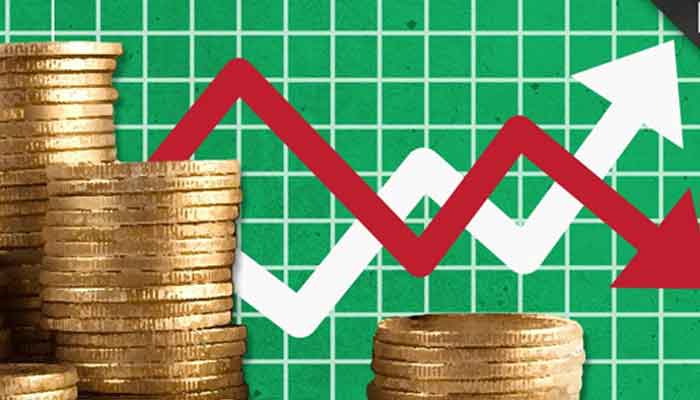Investment driven economic reforms
Comment
The economic reforms presented by Finance Minister Asad Umar in the National Assembly on Wednesday, can be described as a package which aims at increasing investment and growth.
He unfolded a fairly large number of tax and duty concessions for the productive sectors of the economy like industry, agriculture and stock market. However, it must be said that the kind of fiscal policy which has now been presented, if articulated and announced earlier, would have perhaps already started paying the dividends. Nevertheless, it is fair to expect that it would be comprehensively implemented.
So far in its tenure, the government has been making significant efforts to control current account deficit, increase exports, reduce imports and boost its foreign exchange reserves. It is quite evident that their efforts have met with considerable success. Besides, efforts have also been made to reduce fiscal deficit. In fact, these twin deficits are and have been the main problems facing the economy, requiring both short term and long term measures. The austerity drive by the government might have also been of some benefit but overall resource position of the economy has to be brought in to a better balance. The finance minister has promised to make determined efforts in that direction.
There has been much talk about levying the taxes on those who have the capacity to pay but the heavy dependence on indirect taxes has somehow continued. Such taxes have an impact across the board on all the sections of the society.
The directions set by the finance minister suggest that the principle of creating more resources through direct taxes rather than indirect ones will be followed and strengthened. For long, the business community, corporate sector, agriculturists and investors have been persistently demanding for the creation of an atmosphere in which they could carry on their professions without hindrance. It can be assumed that the kind of measures announced by the finance minister will help in moving towards creation of such an atmosphere but it will need to be ensured that it doesn’t get disturbed or disrupted in any way, in order to achieve its objectives.
The potential and advantages of Pakistan’s economy are quite well known. The country also has a reservoir of talented economic and financial experts both within the government and outside. It is reasonable to believe the government has been consulting these experts and benefiting from their opinion. It has also been having a regular dialogue with industrialists, businessmen and farmers. Let us hope that this trend also continues.
Over the past few months, the prices of various commodities including essential kitchen items have escalated putting burden on the under privileged sections of the society. People would expect that as the economy grows and gets stabilised the government will initiate measures to ensure that prices are also stabilised for the benefits of the common man.
The needs of the people of the modest income in areas like education, health, housing and transport are also enormous. Even the backlog is quite heavy. Now it is time that price stability and expansion of social sector services would get the priority attention of the government.
-
 Andrew, Sarah Ferguson Refuse King Charles Request: 'Raising Eyebrows Inside Palace'
Andrew, Sarah Ferguson Refuse King Charles Request: 'Raising Eyebrows Inside Palace' -
 Adam Sandler Reveals How Tom Cruise Introduced Him To Paul Thomas Anderson
Adam Sandler Reveals How Tom Cruise Introduced Him To Paul Thomas Anderson -
 Washington Post CEO William Lewis Resigns After Sweeping Layoffs
Washington Post CEO William Lewis Resigns After Sweeping Layoffs -
 North Korea To Hold 9th Workers’ Party Congress In Late February
North Korea To Hold 9th Workers’ Party Congress In Late February -
 All You Need To Know Guide To Rosacea
All You Need To Know Guide To Rosacea -
 Princess Diana's Brother 'handed Over' Althorp House To Marion And Her Family
Princess Diana's Brother 'handed Over' Althorp House To Marion And Her Family -
 Trump Mobile T1 Phone Resurfaces With New Specs, Higher Price
Trump Mobile T1 Phone Resurfaces With New Specs, Higher Price -
 Factory Explosion In North China Leaves Eight Dead
Factory Explosion In North China Leaves Eight Dead -
 Blac Chyna Opens Up About Her Kids: ‘Disturb Their Inner Child'
Blac Chyna Opens Up About Her Kids: ‘Disturb Their Inner Child' -
 Winter Olympics 2026: Milan Protestors Rally Against The Games As Environmentally, Economically ‘unsustainable’
Winter Olympics 2026: Milan Protestors Rally Against The Games As Environmentally, Economically ‘unsustainable’ -
 How Long Is The Super Bowl? Average Game Time And Halftime Show Explained
How Long Is The Super Bowl? Average Game Time And Halftime Show Explained -
 Natasha Bure Makes Stunning Confession About Her Marriage To Bradley Steven Perry
Natasha Bure Makes Stunning Confession About Her Marriage To Bradley Steven Perry -
 ChatGPT Caricature Prompts Are Going Viral. Here’s List You Must Try
ChatGPT Caricature Prompts Are Going Viral. Here’s List You Must Try -
 James Pearce Jr. Arrested In Florida After Alleged Domestic Dispute, Falcons Respond
James Pearce Jr. Arrested In Florida After Alleged Domestic Dispute, Falcons Respond -
 Cavaliers Vs Kings: James Harden Shines Late In Cleveland Debut Win
Cavaliers Vs Kings: James Harden Shines Late In Cleveland Debut Win -
 2026 Winter Olympics Snowboarding: Su Yiming Wins Bronze And Completes Medal Set
2026 Winter Olympics Snowboarding: Su Yiming Wins Bronze And Completes Medal Set




